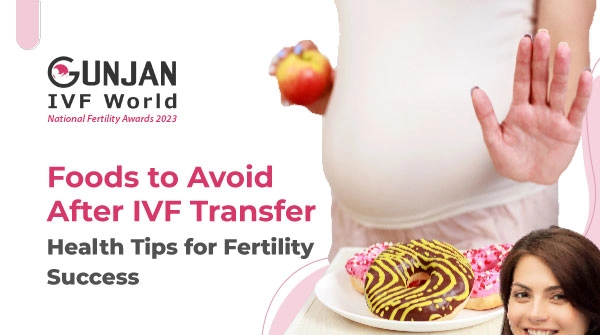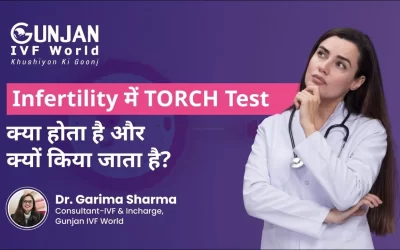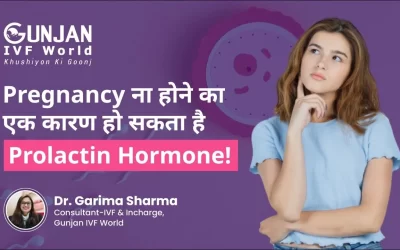Comprehensive Fertility Treatments | Gynaecology Procedures | Menopause Management | Pregnancy Care | Maternity & Birthing
In vitro fertilization (IVF) is a medical procedure used to help couples with infertility to conceive. One of the most critical stages of this procedure is embryo transfer, where fertilized embryos are implanted into the Uterus.
To ensure a successful Pregnancy, paying close attention to dietary habits during the post-transfer Period is essential.
In this article, we will explore the importance of diet during the post-IVF transfer period. We will discuss what to eat and avoid to maximize the chances of successful implantation and reduce the risk of complications.
By the end of this article, you will clearly understand the best dietary practices to follow during and after your IVF transfer.
if you want to know more details: why does IVF failure occur?
For full orthopedic care, consult Dr Sivaiah Potla : Best Orthopedic Surgeon in Guntur
20+ Years Of Experience as Fertility Specialists
20 Years Of Experience as a Fertility Specialists
National Fertility Awards 2023
Call Us
+919990044555
Avoid high-fat foods
High-fat foods should generally be avoided post-transfer after an IVF procedure. This is because consuming a high-fat diet can negatively impact the success of embryo implantation, ultimately hindering the chances of a successful pregnancy.
Studies have shown that a diet high in fat can increase inflammation in the body, which can adversely affect reproductive health. Additionally, a diet high in saturated fats and trans fats can increase insulin resistance, a risk factor for conditions like type 2 diabetes and metabolic syndrome. These conditions can make carrying a healthy pregnancy to term more difficult.
Some specific examples of high-fat foods which should be avoided during the post-transfer period include fried foods, snack foods like chips and crackers, processed meats, full-fat dairy products, and high-fat baked goods like cakes and cookies. Instead, it would be best to focus on nutrient-dense, whole foods that will provide your body with the nutrients it needs to support a healthy pregnancy.
In general, it is recommended that patients following a post-transfer diet should consume a diet rich in fruits, vegetables, lean protein sources, whole grains, and healthy fats. By incorporating these foods, you can provide your body with the nutrients needed to support a healthy pregnancy while reducing the risk of inflammation and metabolic disorders that can arise from consuming a high-fat diet.
While it may be tempting to indulge in high-fat, comfort foods after an IVF transfer, focusing on a balanced diet that includes nutrient-dense whole foods is essential. Avoiding high-fat foods can reduce inflammation, support reproductive health, and increase the chances of successful embryo implantation and pregnancy.
Book An Appointment
Follow Us On
Limit caffeine and alcohol
Caffeine and alcohol should be limited during the post-transfer period following an IVF procedure. These drinks can hurt the success of embryo implantation.
Studies have shown that even moderate levels of caffeine consumption can increase the risk of miscarriage and reduce fertility in both men and women.
Additionally, excessive alcohol consumption has been linked to complications with embryo development and implantation and lower pregnancy rates. It is, therefore, important to limit your intake of caffeine and alcohol during this time.
Fortunately, making small changes to your dietary habits can help you limit caffeine and alcohol consumption during the post-transfer period.
For example, You could drink decaffeinated coffee or tea instead of caffeinated beverages.
It would be best to avoid energy drinks, as they are often high in caffeine and other stimulants, which can negatively affect an embryo’s development.
It’s also important to remember that limiting your intake of caffeine and alcohol doesn’t mean eliminating it. There are still certain caffeinated beverages and alcoholic drinks that you can safely consume in moderation during this time.
Just ensure you read labels carefully and pay attention to serving sizes so you don’t exceed recommended limits for both substances.
In summary, it is essential to limit your consumption of caffeine and alcohol during the post-IVF transfer period to maximize the chances of successful implantation and reduce any risks associated with these substances on reproductive health.
Stay Away From Processed Foods.
Processed foods should generally be avoided post-transfer after an IVF procedure. This is because processed foods can harm the body after this fertility treatment.
Processed foods are often high in sugar, fat, and sodium, leading to increased inflammation and impairing reproductive health.
Additionally, eating processed foods has been linked to a higher risk of developing metabolic disorders such as type 2 diabetes and metabolic syndrome, which can reduce a patient’s chances of achieving successful embryo implantation and pregnancy.
There are plenty of nutritious alternatives to processed foods that you can enjoy during the post-transfer period. Instead of reaching for prepackaged snacks or frozen meals, try incorporating more whole foods into your diet, such as fruits, vegetables, lean proteins, and whole grains.
These nutrient-dense foods will provide your body with important nutrients while keeping inflammation levels low – two critical factors for successful implantation and pregnancy.
Focus on consuming more nutrient-dense whole foods like fruits, vegetables, lean proteins, and whole grains that will provide your body with all the nutrients it needs to support a healthy pregnancy.
Don’t skip meals
Eating a healthy diet and maintaining a regular meal schedule during the post-transfer period following an IVF procedure is essential for successful implantation and pregnancy.
Skipping meals can disrupt the body’s natural processes and lead to hormonal imbalances that can negatively affect embryo implantation.
Additionally, skipping meals can lead to low blood sugar levels, which can cause excessive fatigue and reduce fertility in both men and women.
It is, therefore, important to maintain a consistent eating pattern throughout the post-transfer period and pay close attention to what you are consuming. Aim to eat small, nutritious meals rich in vitamins, minerals, proteins, and healthy fats every few hours.
Focusing on foods like fruits, vegetables, lean proteins, whole grains, nuts, eggs, and dairy products will help ensure your body has all the nutrients it needs to support the successful implantation of an embryo.
In addition to eating well during this period, it’s also important not to overeat or indulge in unhealthy treats too often, as this can disrupt your body’s natural balance of hormones necessary for fertility.
Pay careful attention to what types of food you are consuming and how much so you don’t overindulge or skip meals – this will help keep your hormones balanced for optimal reproductive health outcomes during this period.
Consider specific dietary Restrictions.
In addition to avoiding processed foods and maintaining a healthy diet with regular meal times during the post-transfer period following an IVF procedure, there may be specific dietary restrictions or recommendations specific to each patient or clinic.
For instance, some clinics may require a specific level of physical activity before the transfer and recommend a nutritious diet high in protein and vitamins, meaning certain foods like red meat or processed snacks should be limited.
Other clinics might suggest that patients avoid dairy products as these can increase uterine mucus production, which can interfere with implantation.
It is important for individuals going through the post-transfer period to discuss any additional dietary guidelines or restrictions with their doctor or clinic before proceeding. This will help ensure they follow the best nutrition plan for successful implantation and pregnancy outcomes.
It’s important to check with your doctor or clinic before making any changes. Additional dietary guidelines specific to each case may need to be considered to achieve desired results.
if you want to know more details: 11 Tips To Choose A Fertility Specialist In Delhi?
Wrapping up
The post-transfer period following an IVF procedure is critical for successful embryo implantation and pregnancy. It is, therefore, vital to maintain a healthy, balanced diet and a healthy lifestyle during this period. Eating small, nutritious meals every few hours rich in vitamins, minerals, proteins, and healthy fats can help ensure your body has all the nutrients it needs to support successful embryo implantation.
Additionally, it’s important to pay attention to any additional dietary guidelines or restrictions specific to each case when prescribed by the doctor or clinic. Following these recommendations can greatly increase the chances of achieving desired results from an IVF transfer.
Share this with
Related Videos
What is TORCH test in infertility and why is it done?
There are numerous tests that are available to infertile couples that are recommended by some doctors, which might help them determine the cause of their infertility. One such test is the TORCH test.
What is Prolactin Hormone?
Prolactin is a hormone produced by the pituitary gland present at the brain’s base. It is best known for its role in lactation, or milk production, in breastfeeding women.However, Prolactin also plays other important roles in both men and women, such as regulating the immune system, stimulating the growth of new blood vessels, and influencing behaviour and reproductive function. In this blog, we will explore what Prolactin is, how it works, and what happens when there are imbalances in prolactin levels.
Follow Us On
About Author






